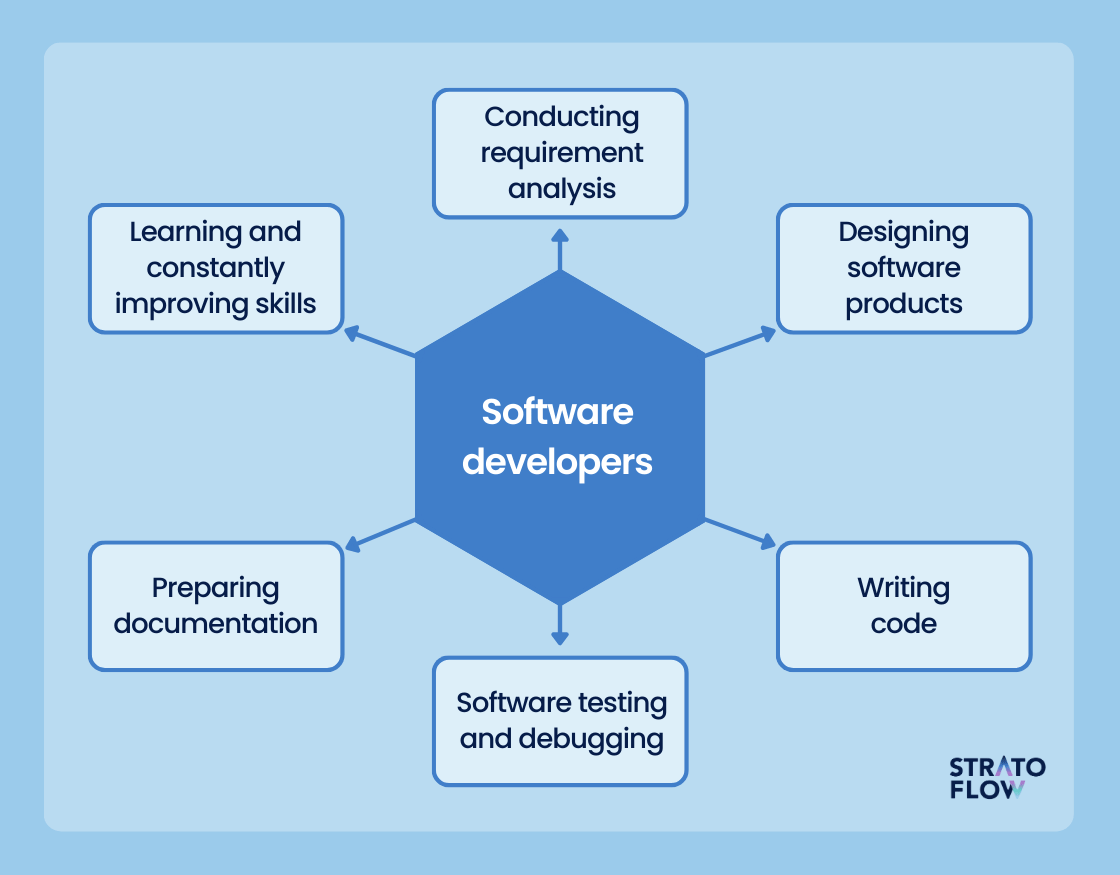Locating the Perfect Software Development Partner for Innovative Solutions
Wiki Article
Dedicated Developers vs. In-House Teams: Which Is Right for You?
The decision between using committed developers and preserving an internal group is a significant one that can affect the trajectory of your jobs and overall service technique. Committed programmers provide a degree of flexibility and specialized know-how that can be useful for specific, short-term efforts. On the other hand, internal groups add to a natural firm society and a nuanced understanding of lasting objectives. By checking out crucial elements such as budget plan, job range, and preferred control, you can better identify which technique lines up with your business requirements. The ramifications of this choice extend beyond immediate outcomes-- think about the broader effect on your company landscape.Understanding Committed Designers
The growing need for specialized skills in the technology market has actually caused the development of dedicated programmers as a practical solution for lots of organizations. These experts are usually contracted on a job basis, allowing business to leverage certain competence without the lasting commitment connected with full-time hires. Committed developers are usually embedded within a customer's team, giving versatility and scalability to meet task needs.This design permits organizations to access a worldwide talent pool, which is specifically beneficial in a quickly evolving technological landscape. Devoted programmers can be sourced from various geographical places, making certain that companies can discover the ideal ability at competitive rates. They usually bring a wealth of experience and understanding, having worked with varied jobs throughout various sectors.
Additionally, dedicated developers can focus solely on the jobs available, boosting performance and efficiency. They are geared up to integrate perfectly into existing process, working together very closely with internal teams to accomplish job goals. This strategy not only decreases the concern of recruitment and training but also enables companies to stay active, adjusting swiftly to altering market demands and technological innovations.
Benefits of In-House Teams

Moreover, internal teams often tend to have a much deeper understanding of the company's objective, values, and objectives. This positioning can boost employee interaction and motivation, as staff member really feel much more linked to their job and the organization's success. Furthermore, having a committed in-house team enables far better alignment of methods and purposes, as these members are continually focused on the company's priorities.
Internal groups additionally facilitate quicker decision-making processes, as they can respond a lot more swiftly to changes and challenges. The established connections and experience with business procedures permit for structured operations and lowered miscommunication. Ultimately, the combination of a you can try here cohesive culture, positioning with organizational goals, and effective interaction makes internal teams a valuable asset for numerous companies, specifically those aiming to grow lasting development and innovation.
Cost Considerations
When evaluating price factors to consider, both committed programmers and internal teams present distinct financial implications for companies. Involving devoted developers generally involves a pay-per-project or per hour price model, which can be cost-effective for organizations with rising and fall job demands. This approach permits for versatility in scaling sources up or down, making sure that business just spend for the services they require.In contrast, internal groups entail dealt with expenses, including incomes, benefits, and overhead expenditures such as office room and tools. While this model offers better control and instant availability of resources, it might cause higher lasting expenditures, particularly if the work does not validate a permanent personnel.
Additionally, business need to consider the hidden expenses related to employment and training of in-house employees, which can better strain spending plans. In many cases, the time and sources invested in handling an internal group can take away from the company's core organization goals.

Project Administration and Flexibility
Project monitoring and adaptability are essential variables that affect the option between specialized designers and in-house teams. Committed teams often have established procedures for managing projects effectively, leveraging details approaches like Agile or Scrum, which facilitate iterative development and flexibility.
Inevitably, the option between specialized developers and in-house groups rests on the preferred degree of adaptability and the specific task management demands. Companies must review their functional characteristics, task intricacy, and resource schedule her latest blog to figure out which alternative lines up ideal with their tactical purposes.
Making the Right Selection
Selecting the appropriate advancement method-- internal teams or committed developers-- needs a cautious analysis of different factors that straighten with a company's critical goals. Conversely, in-house teams can supply far better connection and integration with existing personnel.Following, examine your spending plan. Devoted developers typically offer an affordable option for temporary tasks, while internal teams may incur greater long-term costs due to salaries, advantages, and expenses prices. Assess the degree of control and cooperation preferred; internal teams normally foster stronger communication and placement with company culture.
If immediate outcomes are essential, dedicated developers can be onboarded quickly, whereas developing an internal group takes time for recruitment and training. If continual advancement is vital, spending in an internal group may produce far better returns over time.
Verdict
In conclusion, the decision between devoted developers and in-house teams hinges on project requirements and business goals. Alternatively, in-house groups grow a cohesive culture and much deeper like this alignment with long-term objectives.The choice between using committed designers and preserving an in-house group is a significant one that can influence the trajectory of your tasks and overall business strategy.Job administration and flexibility are important variables that influence the option between in-house groups and devoted designers. software development staff augmentation.In comparison, internal teams may succeed in preserving a regular task administration framework due to their familiarity with the company's culture and lasting objectives. Devoted programmers frequently provide an affordable remedy for temporary projects, while internal groups might incur higher long-lasting expenditures due to salaries, benefits, and overhead expenses.In final thought, the choice in between internal groups and specialized developers hinges on job needs and business purposes
Report this wiki page